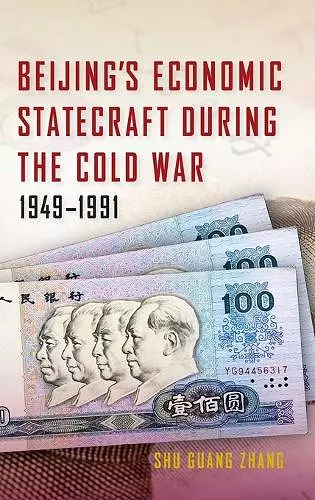Beijing's Economic Statecraft during the Cold War, 1949–1991
Format:Hardback
Publisher:Johns Hopkins University Press
Published:16th Sep '14
Currently unavailable, and unfortunately no date known when it will be back

A worthy addition to the plethora of China studies of our times. -- Xiaoyuan Liu, Iowa State University A major contribution to our understanding of China's economic statecraft in particular as well as China's foreign relations in general. -- Yafeng Xia, Long Island University
, and Japan, but it looks at how Moscow, Hanoi, Pyongyang, Tirana, and Ulan Bator interacted with Beijing in their political economic relations.Beijing's Economic Statecraft during the Cold War, 1949-1991, describes China's use of economic instruments in pursuit of foreign policy goals from its foundation to the end of the Cold War. Taking on China's economic diplomacy during the period of 1949-1991 as an in-depth case analysis, Shu Guang Zhang focuses on the nuts and bolts of Beijing's policymaking and aims to reconstruct China's economic statecraft behaviors, both historically and conceptually. Not only does the study assess China's foreign economic policies playing out in its relations with the U.S., U.K., and Japan, but it also looks at how Moscow, Hanoi, Pyongyang, Tirana, and Ulan Bator interacted with Beijing in their political economic relations.
Provides the readers with a very detailed description and in-depth analysis of how China's economic statecraft, or the use of economic weaponry in diplomacy, evolved during the Cold War years. Pacific Affairs
ISBN: 9781421415833
Dimensions: 229mm x 152mm x 36mm
Weight: 816g
496 pages